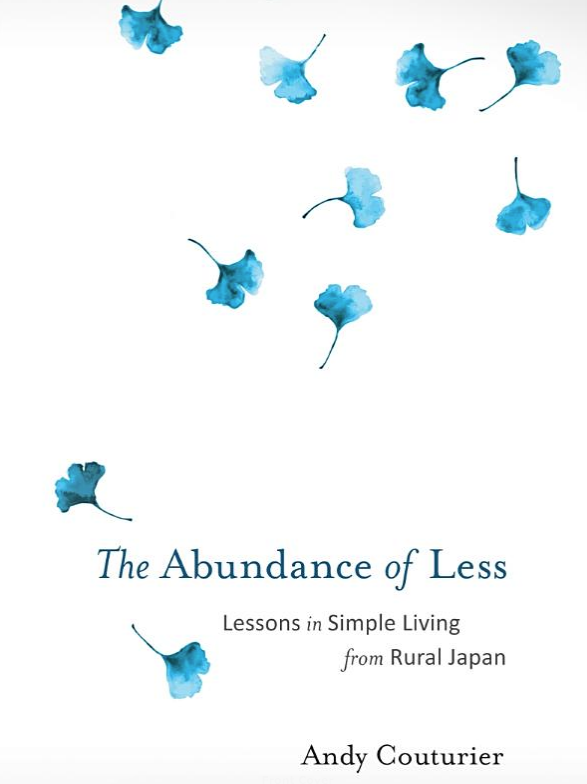Andy Couturier’s book, The Abundance of Less, draws on profiles of people rejecting city life in favour of a rural existence. Originally written for The Japan Times from 1999-2000, they explore the lives of individuals who have chosen to live with “less” in spite of a culture that urges “more”. Japan urbanised decades ago, but China is rapidly catching up, and a consumerist culture is taking root. This makes Couturier’s message of purposeful minimalism particularly relevant today.
Published in 2010 under the title A Different Kind of Luxury, Couturier returns to Japan after the 2011 Fukushima disaster to follow-up with his subjects. Each one lives a frugal life in the countryside, with some spending as little as US$2,500 dollars per year.
Their motivations are manifold. Some draw inspiration from Indian philosophy, others from a desire to grow their own food, or spend time with their children and partners. Others seek more time for reflective tasks: writing, woodblock printing, calligraphy, pottery, poetry or music.
What emerges from the narratives is a picture of conventional priorities upended. Time – the abundance of it, freedom over it, reverence for its passing – is brought up by many of his subjects.
Several of the stories are tinged with a sense of despair at humanity’s capacity for destruction. There are strong arguments against nuclear power and weapons, for example. The bombings of Hiroshima and Nagasaki in 1945 and the 2011 Fukushima disaster have cast a long shadow over the peaceful rural existence of many in Japan.
One man, Masanori Oe, keeps a flame in a brass lantern from the 1945 Hiroshima atomic bombing. The flame has survived seven decades since the blast. It was first kept for 20 years by a grieving mother who believed that the spirit of her son, who was killed in the attack, lived in its flames. The small blaze was then nursed by a Buddhist monk who walked with it across the country as a symbol for peace. Oe will only hold it for so long before passing it on.
San Oizumi, a radical anarchist and potter, bakes bread from grain that is grown in the fallout zone to highlight public fears of food contamination despite official claims of safety; a symbolic statement intended to break through the conventional patterns of anti-nuclear discourse.
Nuclear power seems emblematic of so much in the book, of excess and extremity, of modernisation, of short-term thinking that risks harm to future generations and the environment.
San Oizumi, a radical anarchist and potter, bakes bread from grain that is grown in the fallout zone to highlight public fears of food contamination
A few is enough
Ultimately, the book is a close examination of the lives of just ten countryside-dwelling individuals, who hold little political power and live far outside the typical benchmarks of success defined by their wealthy nation. It is also about individual choice in the face of collective pressure.
After a recent book talk at a café in Beijing’s commercial centre, the author expounded on the environmental problems caused by the current system of globalised capitalism.
“If it's a really unsustainable system, what does that mean? It means at some point it won't keep going.” Asked about the relevance of the stories to China, he replied: “If China is on this trajectory of intense fossil fuel usage and consumerism plus urbanisation (the message of this book) is incredibly relevant.”
Antidote to alienation
The Abundance of Less makes a case for stepping back and disentangling ourselves from the complications of modern life. It urges disengagement with the cycles of consumption, waste, comfort, exhaustion, exploitation, environmental destruction, greed and unhappiness that have grown to typify life in many cities.
Couturier is not an impartial observer, but he carries a clear message. “It's difficult to know what the future brings but radically reducing consumption has got to be a key part of the answer to our environmental problems,” he said.









